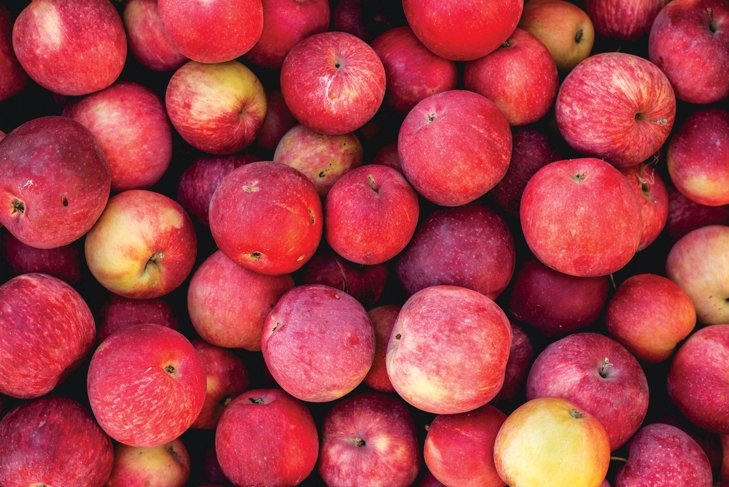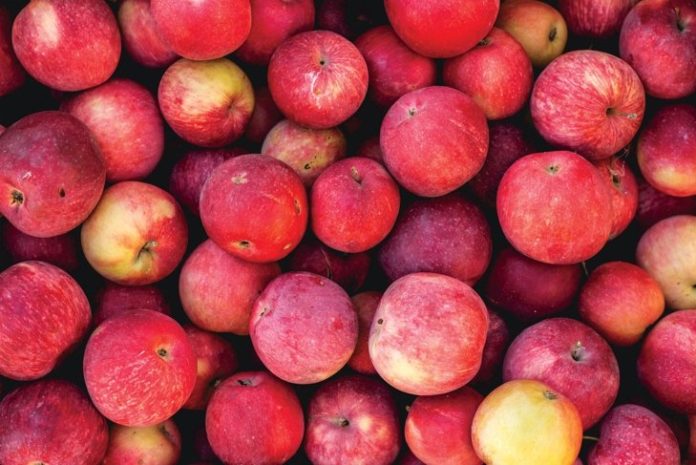
It’d be nice to think we have healthy eating all figured out—but with endless and often contradictory recommendations coming at us from every direction, the occasional misstep is inevitable. Even the most health-conscious people can fall prey to these surprising nutrition traps. Check out these common health traps to ensure your healthy eating efforts aren\’t going to waste.
01
You fear fruit, because sugar
Turn down that sugar-bomb doughnut (even if it is vegan and organic) and reach for fruit, which is full of fiber, vitamins, and minerals galore. An apple might contain as much sugar as a doughnut, but the difference is in the type of sugar. Compared to refined sugars, natural fruit sugars are released more slowly into your bloodstream. That means an apple will leave you more satisfied and less likely to overeat than a doughnut.
Plus, many studies have demonstrated the powerful health benefits of fresh fruit consumption. A recent seven-year study involving half a million Chinese adults was a powerful endorsement of fruit for the prevention of diabetes. Just don’t skip the peels (when edible), as they’re an appealing source of fiber and antioxidants.
02
You take your multi with coffee
Gulping down a multivitamin with your morning caffeine jolt may seem smart—you’re starting your day with the essentials, right? It’s actually not the best idea. Whether it’s coffee or caffeinated tea, that jolt that gets you going on busy mornings also gets your digestive process moving faster.
The result of a revved up digestive system is that everything you consume, including the vitamins and minerals in your multi, moves through your body more quickly. That means you get less time to absorb them before they’re eliminated. Both coffee and tea contain tannins, which can decrease the absorption of iron as well as thiamine (vitamin B1). Calcium may be affected by tannins too, which can decrease the efficiency of calcium absorption. For best results, take your multi well before or at least 30 minutes after you’ve finished your morning coffee or tea.
03
You choose products based on label claims
Sure, the product screams “gluten free,” “sugar free,” “natural” or “vegan” on the front of its label. But have you read the fine print on the nutritional and ingredients sections—often nestled cagily in a fold or corner? A thorough read through this info might change your mind.
Gluten-free products, for example, can be loaded with added sugar, unhealthy fats or refined ingredients. And just because a product is “low” in something we shouldn’t consume in excess—like sugar or sodium—doesn’t necessarily mean it’s healthy. The product may contain lower amounts than the regular product, but still contain more than you think. For example, a tablespoon of low-sodium soy sauce can contain 550 mg of sodium—a quarter of the maximum amount of sodium most people should eat in a day!
04
You don’t shake your nondairy milk
While nondairy milks like almond, soy, cashew, oat and coconut can be healthy choices (except when they contain added sugar and certain thickeners), these milk alternatives often rely on fortification with nutrients they lack, like calcium and vitamin D. These added nutrients don’t stay in the liquid; they settle to the bottom of the container. So, before you pour your favorite nondairy milk, remember to shake it up!
05
You\’re not thirsty, so you figure you’re hydrated
Thirst isn’t necessarily a good gauge of your hydration levels. Other symptoms of dehydration can include less urine or very dark urine, dry mouth, lack of sweat or tears, confusion, feelings of dizziness or light-headedness and even headache. Drink plenty of fluids throughout the day, even when you’re not super thirsty, and be especially aware of your hydration levels when you’re exercising or hanging out in the heat.
You may want to reach for alkaline water: some research suggests that it could hydrate you more. And coconut water is a great natural option to sip during moderate-intensity workouts, as it replenishes electrolytes lost through sweat.
06
You shun egg yolks to avoid cholesterol
Egg yolks do contain lots of cholesterol. And we used to think that reducing the amount of cholesterol in our diet was necessary to keep our heart healthy, especially if our total cholesterol levels were high. But times changed, and evolving research demonstrated that the cholesterol in our blood is made in our liver—not from cholesterol we eat. So the suggestion that we say no to eggs because they’re responsible for increasing our blood cholesterol levels has changed.
The even better news is that eggs are little bundles of big nutrition, and volumes of research demonstrate they’re actually heart healthy (though the jury’s still out for people with type 2 diabetes). Current recommendations say that most people can eat the equivalent of seven eggs a week.
07
You miss out on certain nutrients
A balanced plant-forward diet comes with benefits like increased antioxidant intake and reduced risk of cardiovascular disease. But an unbalanced one can lead to deficiencies in several nutrients—perhaps the biggest nutrition trap of all! For example, some researchers have found more than half of the vegans they assessed were deficient in vitamin B12. If you follow a plant-based diet, speak with your health care practitioner about possible gaps in your supplement game plan. Popular supplements for plant-based eaters include vitamin B12, iron, and zinc.
08
You always choose low-fat options
While opting for low-fat everything may seem like a good idea, do not mistake the claim of “low fat” by processed food manufacturers for healthy. Fats make food taste good and offer a satiating mouth feel or texture when consumed. When food manufacturers remove fat from an item and make a low-fat claim, oftentimes they add sugar to enhance taste. Unfortunately, sugary foods that are labeled low fat are often high in calories.
As a general rule, avoid cakes, cookies, muffins, and ice cream that are labeled low fat, and stick to healthy fat foods such as nuts, seeds, and avocados. If you want to indulge in a sweet, opt for naturally sweet foods such as fruits and dark chocolate.
09
You take iron on an empty stomach
Iron supplements should be taken with food to reduce the risk of an upset stomach. A glass of freshly squeezed orange juice can also be helpful, as vitamin C helps the body absorb iron in the gut and regulates iron uptake and metabolism. Don’t take calcium supplements at the same time as iron supplements or iron-rich foods; calcium can decrease iron absorption. If you suspect you’re anemic, confirm you have an iron deficiency via a blood test by your health care practitioner. A blood test can determine the true level of iron in your blood and whether you need an iron supplement. Professional guidance is important, as excess iron intake can be harmful. Tablets and liquid are two go-to types of iron supplements.
10
You don\’t eat enough fiber
Fiber is not the most fashionable food. It\’s not as noble as protein, not as satisfying as fat, and not as tempting as sugar or starch. But it\’s incredibly important. Most people only get about half the amount of fiber they should aim for each day (25 grams for women and 38 grams for men). Gluten-free eaters, especially, may run the risk of missing out on fiber, since gluten-free replacements may be lower in fiber. Whether or not you follow a gluten-free diet, be sure to eat plenty of fruit, vegetables, quinoa, rice, corn, millet, oats, nuts, and beans.



